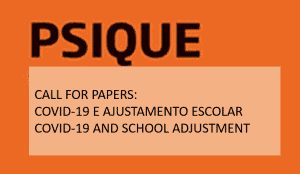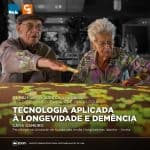O Centro de Investigação em Psicologia do Departamento de Psicologia da Universidade Autónoma de Lisboa está empenhada em respeitar a privacidade dos seus utilizadores.
O Utilizador, ao enviar informação através do site do Centro de Investigação em Psicologia do Departamento de Psicologia da Universidade Autónoma de Lisboa, declara e garante que tem poderes e capacidade para o fazer.
IDENTIFICAÇÃO DO RESPONSÁVEL PELO TRATAMENTO DOS DADOS
- Cooperativa de Ensino Universitário entidade instituidora da Universidade Autónoma de Lisboa
- Rua de Santa Marta 47 2º 1150-293 Lisboa
- privacidade@grupoautonoma.pt
DADOS RECOLHIDOS
O Centro de Investigação em Psicologia do Departamento de Psicologia da Universidade Autónoma de Lisboa, através do Google Analytics, recolhe os seguintes dados agregados: Origem geográfica (cidade, país), idioma, tipo de dispositivo, sistema operativo, browser, operadora, data e hora do acesso, endereços dos dados de referenciação, endereço de IP.
O Centro de Investigação em Psicologia do Departamento de Psicologia da Universidade Autónoma de Lisboa monitorizará toda a informação estatística relativa à utilização do site de forma agregada e anónima. Os dados utilizados para este fim não contêm dados de identificação pessoal ou informação privada.
As análises efetuadas a partir dessa informação serão efetuadas para interpretar os padrões de utilização do site e melhorar os níveis de serviço e a satisfação do utilizador. Essa informação poderá ser revelada a terceiros ou publicamente.
O Centro de Investigação em Psicologia do Departamento de Psicologia da Universidade Autónoma de Lisboa utiliza, ainda, cookies no site de forma a melhorar o desempenho e experiência do utilizador.
“Cookies” são pequenos ficheiros de texto que são armazenados no seu computador ou no seu dispositivo móvel através do seu browser, retendo apenas informação genérica relacionada com as preferências do utilizador; permitem aceder a áreas específicas do site e a uma navegação mais rápida e eficiente, eliminando a necessidade de introduzir repetidamente as mesmas informações.
Os utilizadores do site ao clicarem no banner dos cookies ou ao prosseguirem com a navegação no site do Centro de Investigação em Psicologia do Departamento de Psicologia da Universidade Autónoma de Lisboa estão a aceitar a inserção das cookies nos respetivos dispositivos acima mencionados, sem prejuízo do controlo e gestão disponíveis.
Através dos browsers, qualquer utilizador poderá aceitar, recusar ou apagar cookies, nomeadamente através da seleção das definições apropriadas no respetivo browser. A qualquer momento o utilizador pode, através do mesmo, decidir ser notificado sobre a recepção de cookies, bem como bloquear a respetiva entrada no seu sistema. A remoção ou bloqueio das cookies no site pode limitar o acesso a algumas áreas do mesmo.
O Centro de Investigação em Psicologia do Departamento de Psicologia da Universidade Autónoma de Lisboa pode também utilizar web beacons (incluindo conversion pixels) ou outras tecnologias para finalidades semelhantes às identificadas supra, incluindo-as no seu site, em emails de marketing ou nas nossas Newsletters para determinar se as mensagens foram abertas e se foram feitos cliques nos links disponibilizados. Os web beacons não colocam informação nos computadores dos utilizadores, mas podem, em conjunção com os cookies, permitir a monitorização da atividade do site. Conversion pixels são pequenos códigos localizados numa página web que são ativados quando alguém visita essa página.
O QUE FAZEMOS COM OS SEUS DADOS (FINALIDADES)
Publicação no site cip.autonoma.pt dos seguintes dados pessoais dos Investigadores: Nome, Categoria, Fotografia, Nota Biográfica, Link DeGóis (caso não tenha migrado para CIÊNCIAVITAE. Fonte acessível ao público), Link CIÊNCIAVITAE (fonte acessível ao público), Link ORCID (fonte acessível ao público), Email.
FUNDAMENTO JURÍDICO
Consentimento.
DURANTE QUANTO TEMPO ARMAZENAMOS OS SEUS DADOS
Serão conservados enquanto o Titular dos Dados não retirar o seu Consentimento.
TRANSFERÊNCIAS PARA PAÍSES TERCEIROS
Não existem transferências de dados para países terceiros.
TRATAMENTO DOS DADOS
Não serão objeto de tratamento para decisões individuais automatizadas, nem para definição de perfis.
MEDIDAS IMPLEMENTADAS PARA PROTEÇÃO DOS SEUS DADOS CONTRA O ACESSO, A ALTERAÇÃO OU A DESTRUIÇÃO NÃO AUTORIZADA
O Centro de Investigação em Psicologia do Departamento de Psicologia da Universidade Autónoma de Lisboa toma as precauções necessárias e legalmente exigidas para garantir a proteção da informação recolhida junto dos seus investigadores e utilizadores.
Na fotografia será colocada a marca de água.
Entre outras, estão implementadas as seguintes medidas técnicas e organizacionais para garantir a segurança e confidencialidade dos dados pessoais: segurança física (através de controlo de acessos), separação lógica dos registos, passwords de acesso e níveis de acesso, firewalls e programas antivírus.
OS SEUS DIREITOS
Todos os dados pessoais são tratados de acordo com os termos do previsto no Regulamento UE 2016/679 do Parlamento Europeu e do Conselho, tendo os titulares dos dados pessoais direito de aceder, livremente e sem restrições, confirmando, retificando, apagando ou bloqueando os dados que hajam facultado, bem como o direito à portabilidade e à limitação do tratamento no que disser respeito ao titular dos dados, ou do direito de se opor ao tratamento, podendo exercê-lo por escrito, pessoalmente nas nossas instalações ou através do email privacidade@grupoautonoma.pt, a todo momento e sem qualquer encargo.
O Titular dos dados tem o direito de retirar o seu consentimento a todo o momento, podendo exercê-lo por escrito, pessoalmente nas nossas instalações ou através do email privacidade@grupoautonoma.pt.
O Titular dos Dados tem o direito de apresentar reclamação à Comissão Nacional de Proteção de Dados ou a qualquer outra autoridade de controlo.




